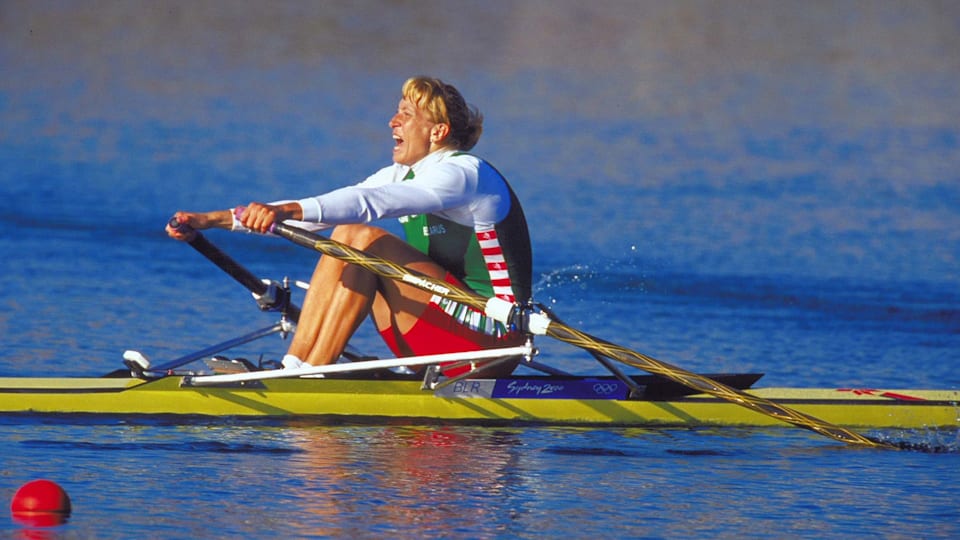Introducing the rower aiming for her eighth Games at Tokyo 2020
Ekaterina Karsten has competed at every Olympic Games since 1992, winning two golds, one silver and two bronze medals in the process. The 46-year-old has also claimed six World Championship titles and 29 World Rowing Cups. So far. Still right at the top of her sport, the remarkable Karsten is aiming for Tokyo 2020 and doesn’t plan on letting anything get in her way…

How is the body feeling?
I am feeling pretty good. I feel strong enough. I am training with young athletes and I get a lot of energy from working with them. I have lived the same way throughout the last 30 years and for me it is normal – waking up early and going training.
Is it the prospect of competing in your eighth Olympic Games in Tokyo in 2020 which keeps you going?
It would probably be the highlight of my career if I made it to Tokyo. I don’t want to think too much about it. I am not sure if I will be in good enough condition to go to Tokyo but it would be fantastic.
Your husband gave you a ring in 2017 to celebrate 30 years in rowing. Can you explain a little more about it please?
It was a very special ring. In the inside, the Olympic rings are engraved alongside the dates of all my Olympic Games. And he has left one place empty, and when he gave it to me he told me that it was for Tokyo 2020 and that for sure I will be there. He is so supportive of everything I do.
What is the secret to your longevity?
I have thought a lot about this but there is no secret; I just love what I am doing. That is it. I have never done any special diets. I sometimes used to stay out late and even after sleepless nights I would go and win sometimes.
There is nothing special, maybe just some luck from nature.
What does your daughter think of the fact that you are, at 46 years old, still competing at an elite level?
Of course she worries a lot, mainly about my health and when things go wrong with my body. She talks to me a lot but she knows that rowing is my life, and she does always support me. I think she is really proud of me but she doesn’t talk about it lots.
My niece, who lives in Belarus, is much louder about my achievements and my medals [laughs].
Does your daughter row?
She is very tall and she used to row. I used to say that I would finish rowing after I had rowed in a crew with my daughter and won the Olympic Games. But unfortunately my daughter stopped rowing after just one-and-a-half years.
Looking back to your first Games in Barcelona in 1992, what has changed for you and for the sport?
I was only 20, it was my job. I didn’t really appreciate what the Olympic Games were.
The big difference between then and now on the water is the technique and the tempo, which are really different now. Rowing has developed so much, the athletes push themselves so much more. They are so much more advanced. Rowing is a lot harder now and a lot more professional.
What has been the highlight so far?
Atlanta 1996, single sculls, for sure. It was a great event and my first Olympic gold medal. It was so good. And from then on, we started the tradition, with my first coach, of him buying a bottle of champagne and then we would put the gold medal inside the glass and drink together – just in a normal glass because the medals were always too big to fit in a champagne glass.
Any regrets?
No, there is nothing I would change. Everything happened the way it should.
What are you passionate about away from the water?
I love jigsaw puzzles. When I start one, I can’t stop. I have done a 5,000-piece one, a map of the world. It took several months. I have to do them between training sessions and the time just goes by so quickly.
Also, I love growing and looking after and arranging flowers. And I love knitting. I started doing it ages ago. I used to knit clothes for my daughter. She would want to buy something and I would just knit it for her instead.
All this stuff takes my mind off rowing and helps me to relax.
Can you imagine a life without rowing?
I can’t imagine it. I was going to stop rowing after Rio [Olympic Games 2016] but I couldn’t do it, I couldn’t imagine not training and not having a schedule. Right now, I don’t even want to think about stopping rowing.
